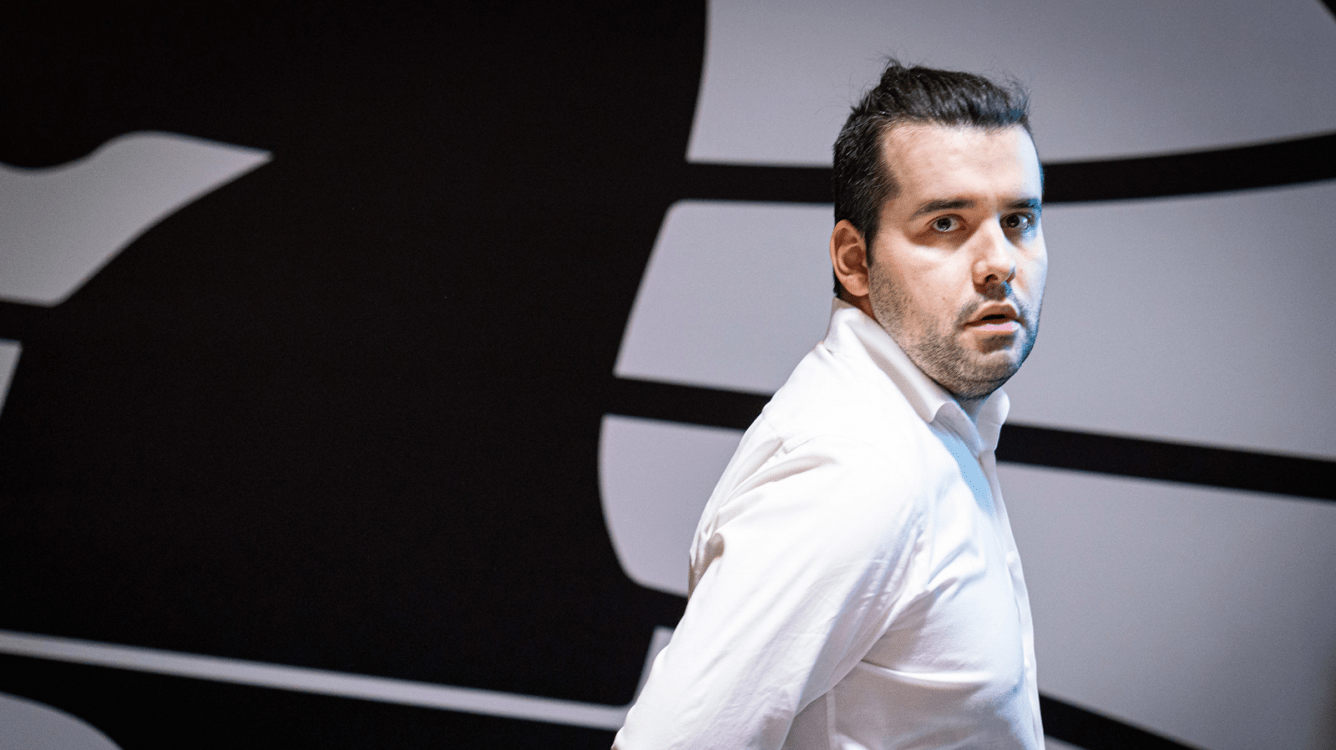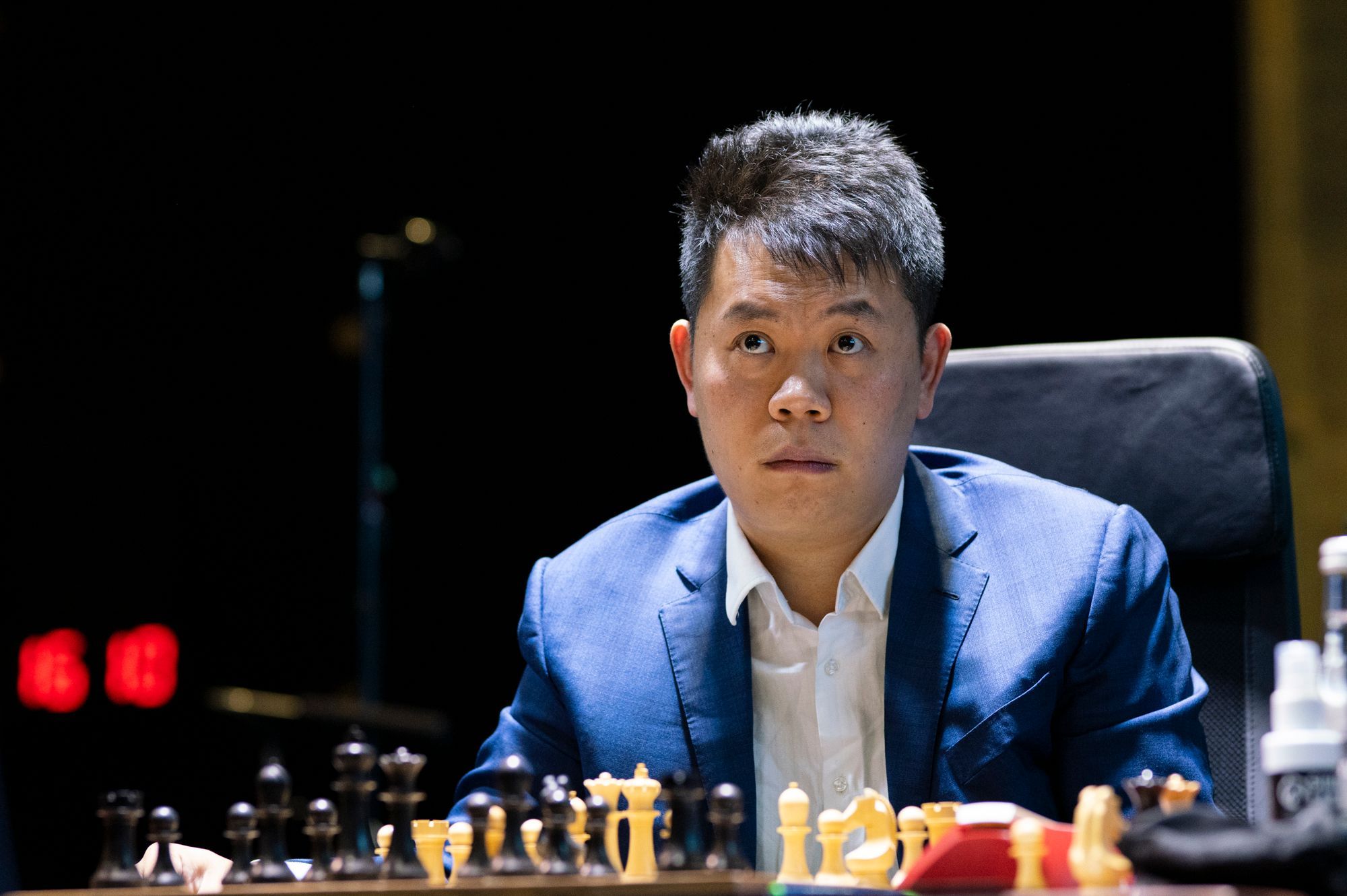
How Nepomniachtchi Became The 2021 WCC Challenger
The 2020-21 FIDE Candidates Tournament holds the dubious distinction of being the longest tournament in chess history. It spanned 14 months, yet just 14 rounds were played. While we are all well aware of the reasons for that and we applaud the players for sticking around to complete the event, there's still a lingering feeling of dissatisfaction.
Many of us lament the absence of GM Teimour Radjabov, who, if we judge by his recent quality run at online events, could have made a difference. Some regret how GM Maxime Vachier-Lagrave's momentum gained at the finish of the first half fizzled out because of the long intermission. Others wish that GM Fabiano Caruana and GM Anish Giri didn't have to overcome a full-point deficit at the start of what (in their opinions) should have been a fresh start event.

At any rate, the tournament is finally in the books, and it did produce the winner in GM Ian Nepomniachtchi, who will face GM Magnus Carlsen in the world championship match later this year.
After writing about the tournament before the second half commenced, I decided to take a deeper look at the games from the second half to form my own opinion on whether Yekaterinburg 2020-21 was the worst Candidates ever, as many pundits claim.
Let's start with the scoreboard:
| # | Fed | Name | Rtg | Perf | 1 | 2 | 3 | 4 | 5 | 6 | 7 | 8 | Pts |
| 1 | Ian Nepomniachtchi | 2774 | 2849 | 0½ | 1½ | ½½ | 10 | ½½ | ½1 | 11 | 8.5/14 | ||
| 2 | Maxime Vachier-Lagrave | 2767 | 2824 | 1½ | ½½ | ½0 | 1½ | ½0 | ½1 | ½1 | 8.0/14 | ||
| 3 | Anish Giri | 2763 | 2799 | 0½ | ½½ | ½1 | ½1 | ½0 | 10 | ½1 | 7.5/14 | ||
| 4 | Fabiano Caruana | 2842 | 2789 | ½½ | ½1 | ½0 | 0½ | ½½ | 1½ | ½1 | 7.5/14 | ||
| 5 | Ding Liren | 2805 | 2769 | 01 | 0½ | ½0 | 1½ | ½1 | ½1 | 0½ | 7.0/14 | ||
| 6 | Alexander Grischuk | 2777 | 2773 | ½½ | ½1 | ½1 | ½½ | ½0 | ½0 | ½½ | 7.0/14 | ||
| 7 | Kirill Alekseenko | 2698 | 2708 | ½0 | ½0 | 01 | 0½ | ½0 | ½1 | ½½ | 5.5/14 | ||
| 8 | Wang Hao | 2762 | 2674 | 00 | ½0 | ½0 | ½0 | 1½ | ½½ | ½½ | 5.0/14 |
Nepo's winning score of 8.5/14 is on par with Carlsen's (and GM Vladimir Kramnik's) in London 2013, GM Viswanathan Anand's in Khanty-Mansiysk 2014, and GM Sergey Karjakin's in Moscow 2016. Only Caruana's 9/14 score in Berlin 2018 exceeds that, but keeping in mind that Nepo had secured qualification with a round to spare and sort of mailed in his last game, we can conclude that he didn't exactly squeak in.
Another story is how Nepomniachtchi got there. From the first game of the second half, his strategy became obvious: make draws against the contenders (he was White in those) and pick a win or two against the tailenders. It worked to perfection, as Nepo did beat GM Kirill Alekseenko and GM Wang Hao, both rather easily. But what if he hadn't?
A +2 score would not have possibly been enough to win the tournament. Would Nepomniachtchi then have to put everything into trying to beat MVL with White in the penultimate round, just to even their head-to-head tie-breaks? Quite possibly so, but one cannot argue with success—Nepo is the winner, and he's going to Disneyland Dubai in November.

Something missing in Yekaterinburg was the emergence of a strong second-half contender, as we saw in London 2013 (Kramnik 5/7), Khanty 2014 (Karjakin 5/7), and Moscow (Caruana 4/6 before his dramatic loss in the last round) as well as Karjakin again (5/7) in Berlin 2018.
In Yekaterinburg 2021 it was GM Ding Liren who won the second half with 4.5/7, but he was too far away to contend for first place. The main ranks of Nepo's opposition struggled mightily.
MVL barely avoided starting 0/2 (he was totally lost against Ding in round eight) and was able to regain his +2 score only at the very end of the tournament. In some way, MVL's struggles were predictable. He didn't play that well in online Carlsen events, and totally crashed and burned out of Tata Steel 2021.
I may be off the mark, but others have also pointed out how MVL's extremely narrow opening repertoire makes him particularly vulnerable to his opponents' preparations. We saw it in the Caruana game right at the resumption of play and again in the Grischuk game a few days later. In both cases, MVL was able to survive the opening only to make more mistakes later in the games.

Giri could have been the hero of the tournament. His play in the first five rounds of the second half was the absolute gold standard, aside from one hiccup in round 10 (when MVL missed his chance). That win as Black over Caruana with the tournament on the line was a real positional gem, bringing his total to 4/5.
The stage was set for a monumental rise to the title match with just two games left, both against Russian players who were out of contention. Giri was just half a point behind Nepomniachtchi, but the tie-breaks were not on his side, so he felt he needed to win both games (wouldn't 6/7 be something?).
As it turned out 1.5/2 would be enough, but who would have believed it? Perhaps Giri should have taken Grischuk's silent draw offer, and then he'd certainly play differently against Alekseenko in the last round. Oh well, maybe next time.

Caruana has reasons to be unhappy with his play in both halves of the Candidates. Coming to contention as the pre-tournament favorite, he failed to deliver. His all-important win over MVL at the start of the second half gave his hopes a boost, but the very next game was a disappointment. After Caruana failed to convert an extra pawn against Alekseenko, the momentum was gone.
I think a fair assessment of Caruana's play would be a rather unflattering "all opening and not much after that." I'm sure it can be fixed in the future, but for now, his chess comes short of his ranking as the world number-two.

Not much can be said about Ding's tournament, aside from the obvious fact that he won the second half and achieved an acceptable score of 50 percent. Ding certainly didn't benefit from his experience of playing in online events, where the games were scheduled to accommodate Central European Time, which is in the middle of the night in China. Add the unreliable internet connection to the mix, and it turned out to be a total disaster for Ding.
He fought hard in Yekaterinburg, but his trademark steady nerve abandoned him. His win over Alekseenko was almost as bad as the loss to Giri.

Similar problems plagued Grischuk's chess. Twice he simply collapsed (against Alekseenko and Ding) when there was nothing on the board that would warrant such a turn. I may offer an unsolicited observation that he took his foot off the gas pedal a bit.
At times it seems Grischuk is torturing himself by trying to play a perfect game, while his normal chess should be good enough to extend his career for many years to come. Many great players went through difficult times as they approached middle age. The solution is not to absorb too much pressure, but, instead, take a page from Anand's book, and just let your chess flow naturally.

Now to the bottom half of the standings, occupied by the two guys who received sharp criticism from many experts, headed by GM Garry Kasparov himself, for simply not being good enough for a Candidates challenge. I find this completely unfair. The system that FIDE puts in place is never the fault of the players. They just try their best. Both Alekseenko and Wang qualified for Yekaterinburg, case closed.
Some distinction can be made between these two. Alekseenko actually played better in the second half. He scored two wins and nearly won another one, while two of his losses came as the result of poor opening choices. Kirill's final tally of 5.5/14 is not such a disaster, particularly if we recall Radjabov's 4/14 in London, Topalov's 4.5/14 in Moscow, or Aronian's 4.5/14 in Berlin. Somebody has to be off-form, and that could be a great player having a bad tournament. What Alekseenko showed was an undying fighting spirit, and it bodes well for his future success.

A different story was Wang's catastrophic finish. It wasn't just the three losses; it was more alarming to see how indifferent he appeared to his duty of playing every game hard. It seemed that Wang was counting the days before he could leave Yekaterinburg and never come back. He actually made a statement to that extent after the first half had been finished, and it made some think he might just drop out of the tournament.
Fortunately, his issues didn't have much of an impact on the standings because Wang lost to all four contenders for the top spot and then announced his retirement from competitive chess. As for the latter, I have my doubts. I don't think the Chinese Chess Association will run to Wang with offers of coaching positions. “Saving face” is big there, and as far as that cultural attribute is concerned, Wang lost his. I believe that he's a good enough player to make it on his own, and I wish him the best of luck.

What's ahead for the chess world is a question best left for my next article, but for now, please, turn your attention to the games; they are worth it. Here is a collection of my annotated games for the second half of the Candidates tournament:
Annotated Games From The Second Half Of The Candidates Tournament




